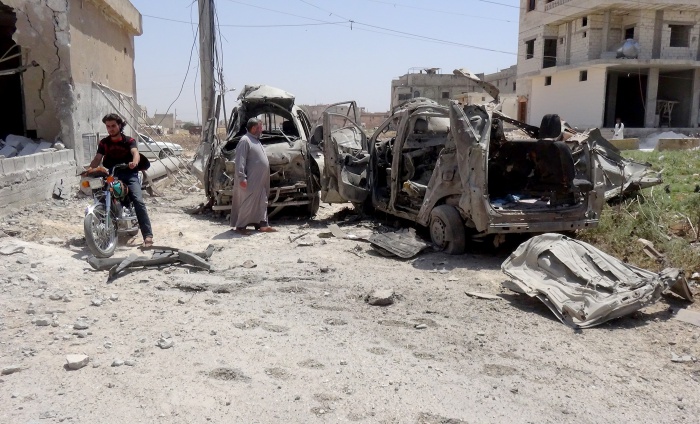An escalation in fighting and airstrikes in Syria’s rebel-held Idlib province leaves 2.5 million civilians with “no place else to go” within their shattered homeland, the United Nations said on Monday, according to Reuters.
Panos Moumtzis, the UN regional humanitarian coordinator, called on major powers to broker a settlement to end the war and avoid a bloodbath in Idlib.
The northwest province, bordering Turkey, has become a “dumping ground” for civilians and fighters evacuated from other opposition-controlled areas, swelling its population, he said.
“With this escalation, this deterioration, we worry really about seeing two-and-a-half million people becoming displaced more and more toward the border of Turkey if this is to continue,” Moumtzis told a news briefing in Geneva.
“We also worry that for the people of Idlib, there is no other Idlib to take them out to, really this is the last location,” he said.
Moumtzis cited reports of a deadly airstrike on Sunday that killed 11 people and hit a pediatric hospital.
Airstrikes on a village in Idlib killed at least 44 people overnight, the highest death toll in a single attack on the region this year, the Syrian Observatory for Human Rights said on Friday.
The monitoring group said Russian war planes probably carried out those attacks. Russia is Syrian President Bashar al-Assad’s main ally in his war against an armed opposition, now in its seventh year.
Moumtzis said a major battle for Idlib could be “much more complicated and brutal” than fighting for eastern Aleppo and eastern Ghouta — two rebel-held areas that surrendered with evacuations in 2016 and 2018, respectively.
“We cannot see a military solution, it cannot take place,” he said. “Our worry is that with the Idlib situation we may have not [yet] seen the worst in Syria.”
The Islamic State in Iraq and the Levant (ISIL) and other militant groups are mingled in the population in Idlib, making it a “highly explosive” situation, he said.
Referring to Turkey, Russia and Iran, which have held peace talks, he said: “This is a de-escalation area, we hope the Astana guarantors, everybody, will do everything to ensure a calming down of the situation.”
“The message of today is that the emergency not over. We still see massive displacement, we still see massive humanitarian needs, and have huge concerns on the protection of civilians,” he said.
An aid convoy reached Douma in the enclave of eastern Ghouta outside Damascus on Sunday, but the government did not allow UN aid workers to accompany it, he said, saying that direct access was vital.
